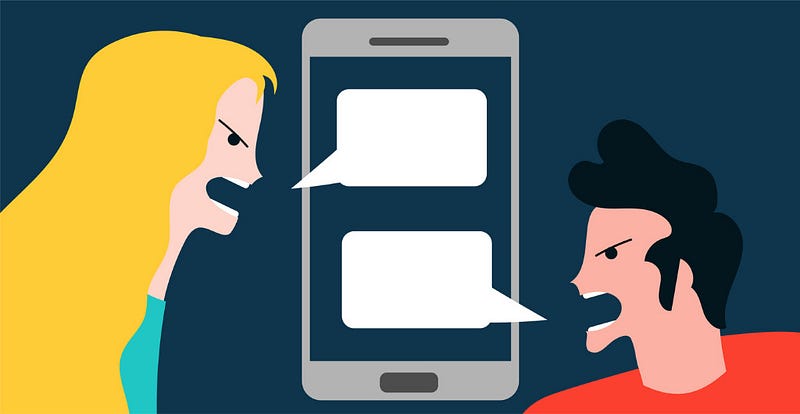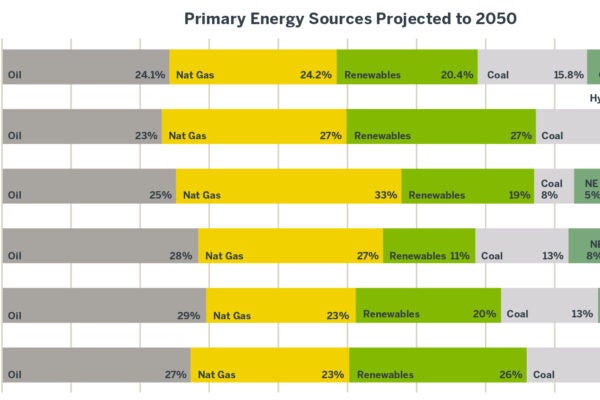Don’t Be Rude: Polite Answers Favored by Online Questioners
Civil replies beat confrontational ones when answering other online readers
Based on the research of Andrew Whinston

Spend some time online and it’s obvious a lot of people don’t play well with others. Facebook threads and Twitter feeds can display scorching levels of venom and flame.
So new research from Texas McCombs might come as a relief. In some corners of the internet, it pays to be civil, finds Andrew Whinston, professor of information, risk, and operations management and director of the Center for Research in Electronic Commerce at McCombs.
Whinston and his fellow researchers discovered a “politeness bias” among users who pose questions on a popular information forum. By analyzing more than 400,000 sets of questions and answers they discovered askers prefer responses written in respectful forms, even when the content isn’t the most useful.
“If you want to give advice to someone online, you should do it politely.” — Andrew Whinston
Quest for the Best Answer
Since the days of computer bulletin boards, internet users have tapped the wisdom of the crowd. Today, a key medium is community-based question answering sites. In forums like Quora or Reddit, a person can post a question on any subject and get a variety of answers from other users.
Because anyone can respond, regardless of expertise, such sites have mechanisms to sort out the best answers. Some let the person who asked the question choose their favorite. Others let users vote on the top response. Many, like Stack Exchange, do both.
Reading those sites, Whinston was struck by how often a questioner liked one answer, while the rest of the users favored a different one. “I thought it might be because of the politeness issue,” he says.
He suspected that questioners might be choosing answers for feel-good reasons rather than good information.
Whinston and his coauthors — Ph.D. students Shun-Yang Lee, now an assistant professor at the University of Connecticut, and Huaxia Rui, now an associate professor at the University of Rochester — examined 770,414 answers to 422,980 questions on Stack Exchange. They chose the site for its size and the fact that both questioners and other users got to rate the best answer. For each post on the site, he measured a key variable: its level of impoliteness.
Discouraging Words
Whinston wasn’t looking for curse words or insulting names. Instead, using a linguistic framework called politeness theory, he screened for five kinds of verbal markers that subtly challenged a questioner’s self-image. The more often they occurred, the higher the impoliteness level.
· Using “why” or “how” could imply doubt.
· Negations like “can’t” could be read as a threat.
· Starting a sentence with “you” could signify a command or a question.
· Informal titles like “dude” may be disrespectful.
· “You can” might sound like giving advice.
The researchers found that being rude made a difference. For every 10 percent increase in an answer’s impoliteness level, a questioner was 8 percent less likely to choose it.
Tone didn’t matter to non-questioners. For them, there was no correlation between impoliteness levels and which answers they voted the best. Whinston explains that because they weren’t the ones asking the questions, they didn’t take the answers personally.
He found a single exception to the pattern: reputation. A questioner was more likely to accept a confrontational answer if its author was rated highly by other users.
“The higher the measure of your reputation, the more impoliteness you can get away with. If you’re a famous scientist, and a kid asks you a silly question, you can tell them they’re stupid, and they’ll still admire you.” — Andrew Whinston
Civility vs. Utility
Politeness bias might sound like a positive quality, says Whinston, but it can be a negative when selecting the best reply. Questioners should be aware of their own bias, so that they don’t overlook useful advice that’s brusquely phrased.
Online forums are also less reliable when respectful answers outweigh the value of useful ones. Whinston suggests that sites like Stack Exchange counter politeness bias by highlighting the answers most popular with all users over the ones that questioners select.
Forums could also improve users’ online manners by offering a politeness check, akin to a grammar check, he says. It would scan an answer and suggest a friendlier rewrite.
Facebook and Twitter might benefit, too, from raising their respect levels, Whinston adds. “If the goal of the discourse is to persuade a particular reader, then being polite can increase the likelihood of the advice being accepted,” he says.
“Besides, it’s as cheap to be polite as it is to be rude. So you should try to be polite online, as a general rule.”
“Is Best Answer Really the Best Answer? The Politeness Bias” is forthcoming in June 2019 issue of the MIS Quarterly.
Story by Steve Brooks
About this Post
Share:


